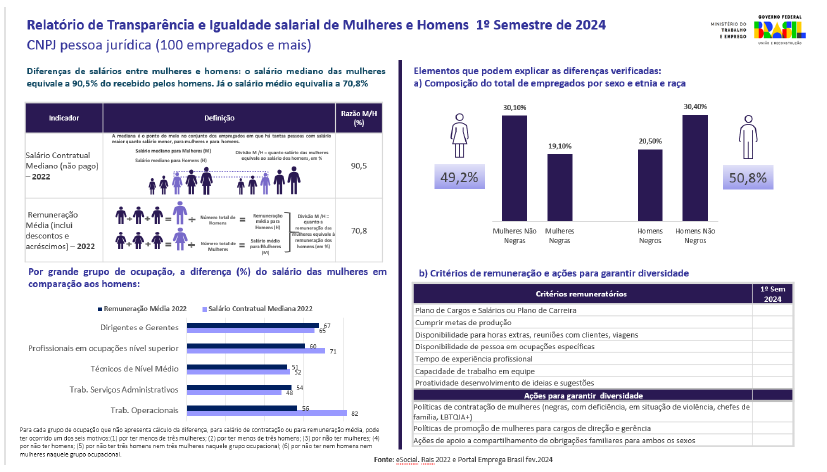International Seminar Addresses the Challenges of Equal Pay in Chile
International Seminar Addresses the Challenges of Equal Pay in Chile
June 26, 2025
University of Talca, Talca, Chile
Like many countries, Chile has not yet managed to close the gender pay gap. According to the latest results from the Supplementary Income Survey for 2023, the average gender pay gap in Chile is 23%. If we consider only wage earners, i.e., employed workers, the gap is 17%.
The country passed a pay equity law in 2009 and has since promoted the generation of statistics, transparency for publicly traded companies, national and international best practices, and gender equity certifications. However, the gap persists. It fluctuates around 20% each year and has proven resistant to significant reductions.
As part of efforts to advance in this area, the University of Talca, through its Faculty of Economics and Business (FEN), joined the Equal Pay International Coalition (EPIC), of which Chile is a member. In this context, the seminar “Pay Equity: Advancing Toward Decent Work” was convened by FEN in collaboration with the Ministry of Labor and Social Welfare, and hosted at the University of Talca’s Talca campus.
Regarding UTalca’s incorporation into EPIC, the university’s Rector, Carlos Torres Fuchslocher, stated:
“This is an opportunity to collaborate with other institutions and commit ourselves as members of the Coalition. By joining EPIC, institutions reinforce the Coalition’s continuity and impact over time. It also allows us to share best practices and enrich the measures we implement by learning from others.”
Labor Minister Giorgio Boccardo emphasized the role of various sectors and academia in addressing this challenge:
“We understand that the challenges are structural, which is why we’ve incorporated a gender dimension throughout the labor agenda. The role played by employers’ organizations and the CUT (Central Workers’ Union) has helped move various initiatives forward. It’s also very important that a university like the University of Talca leads this initiative at the national level, as it ensures continuity beyond the current government.”
National and International Perspectives
The seminar featured presentation by an internation speaker, Maira Lacerda, Head of International Affairs at Brazil’s Ministry of Labor and Employment. Brazil currently holds the EPIC presidency.
“We must understand that achieving this goal is a challenge for everyone—not just governments and companies. It’s everyone’s problem. Therefore, initiatives must be based on social dialogue and involve all stakeholders. Ensuring equal pay in the labor market benefits everyone, so we must unite and design policies and measures that are feasible for all,” she explained.
A panel discussion followed, featuring Antonio Minte, General Manager of the Chilean Wood Corporation (CORMA), and Karen Palma, Vice President for Women at the CUT. They explored the country’s opportunities and challenges regarding pay equity in a conversation moderated by FEN UTalca academic Andrea Bentancor.
“We value this tripartite space, which includes an important international component. It shows that the world is discussing policies that can be replicated in our country, and that’s significant for CUT. It’s not enough for more women to enter the labor market; we also need equal conditions for men and women,” said Palma.
Minte outlined the progress made by the industry:
“We have a program entitled ‘More Women’ that promotes the inclusion of women in the forestry sector. We’ve taken on this challenge and are among the first productive sectors to make progress. We hope to set an example and expand this work to other sectors.”
Actions from Academia
Academic research and technological development have been key actions from FEN. One example is the creation of a wage gap calculator developed through the #NiMásNiMenos program, led by Bentancor. This tool helps raise awareness and generate practical solutions for the private sector.
“We’ve developed a tool that calculates the wage gap and provides users with concrete estimates. By using technology and informative tools, we’re able to inform, raise awareness, and change attitudes on this issue,” she said.
“We’ve introduced this into the world of work. Currently, with CORMA, we’re developing a wage gap calculator tailored to their activities—because measuring the gap in mining is not the same as in forestry,” Bentancor added.
FEN UTalca Dean, Dr. Arcadio Cerda Urrutia, highlighted the importance of this international initiative:
“As the University of Talca and its Faculty of Economics and Business, we value this space that allows us to integrate perspectives from the private, public, and academic sectors to advance actions that reduce the wage gap. We also emphasize that being part of the Equal Pay International Coalition (EPIC) strengthens our teaching and research efforts.”
